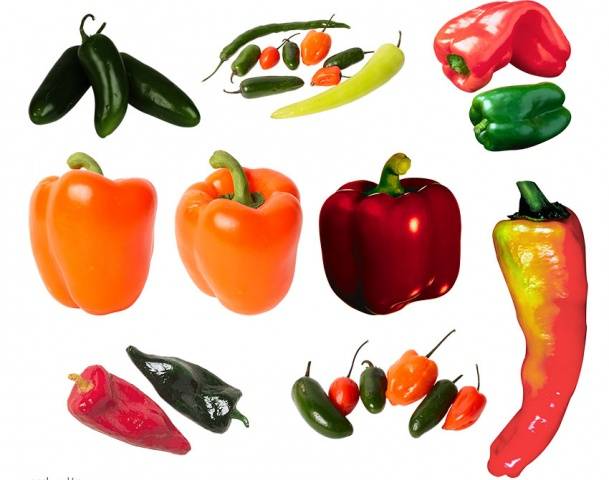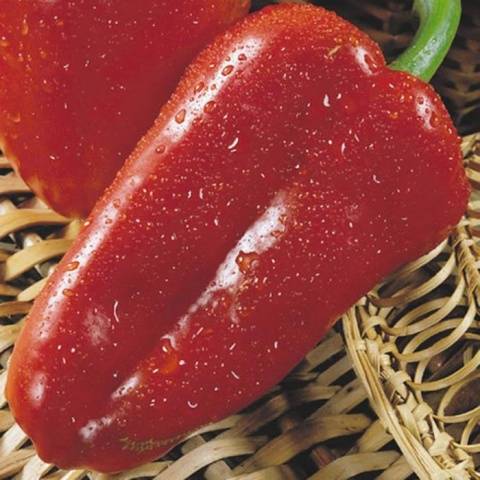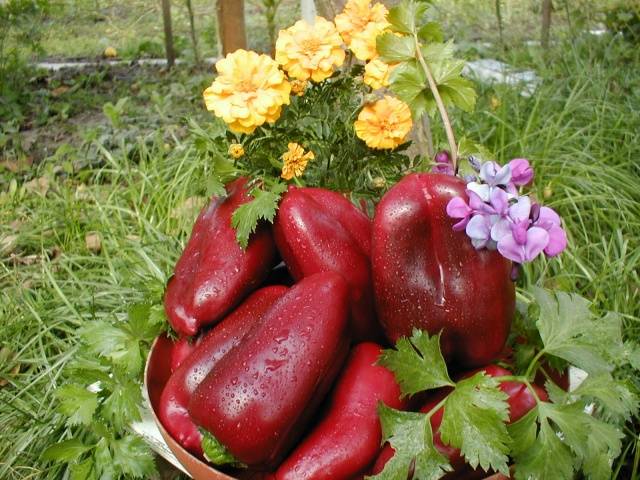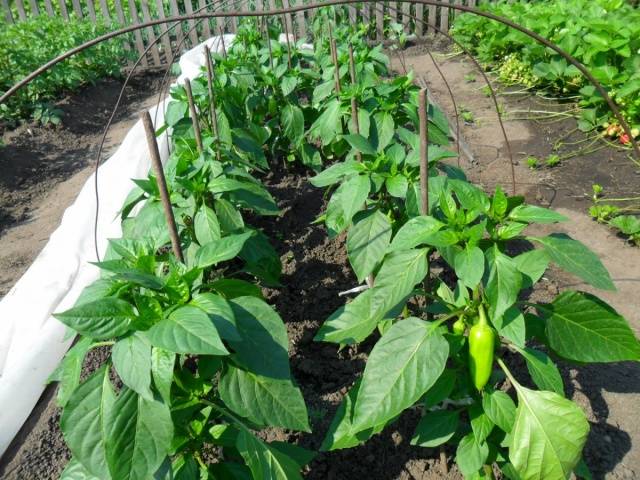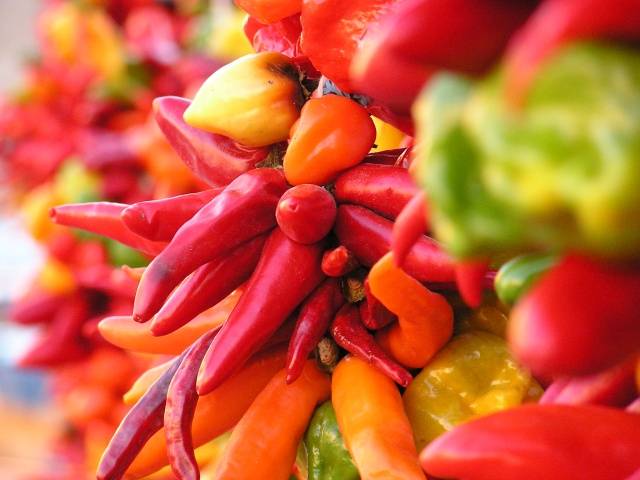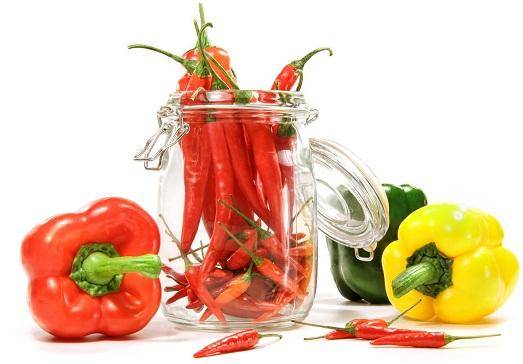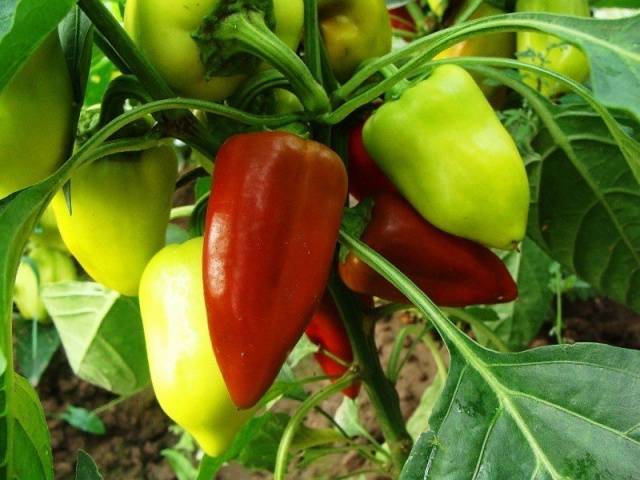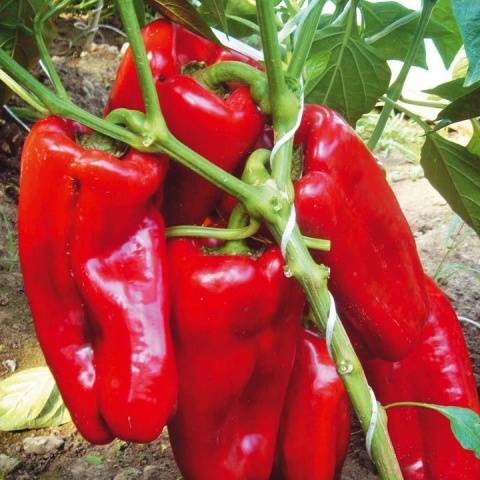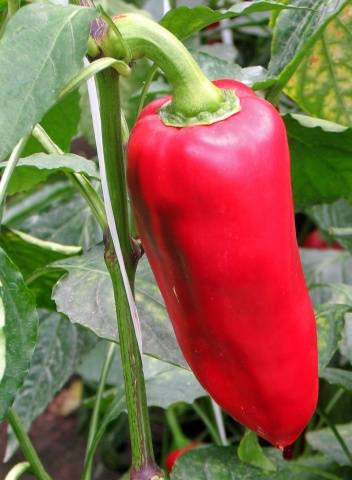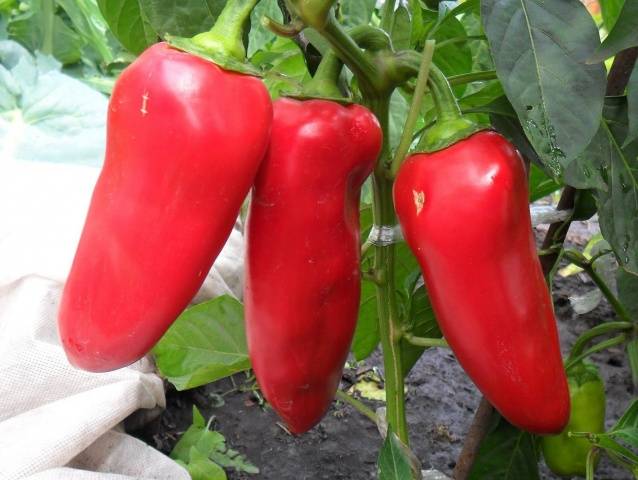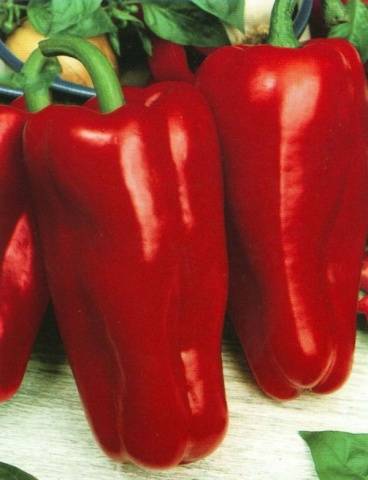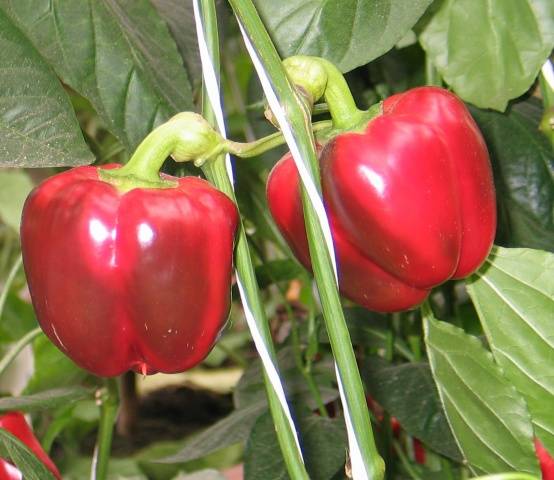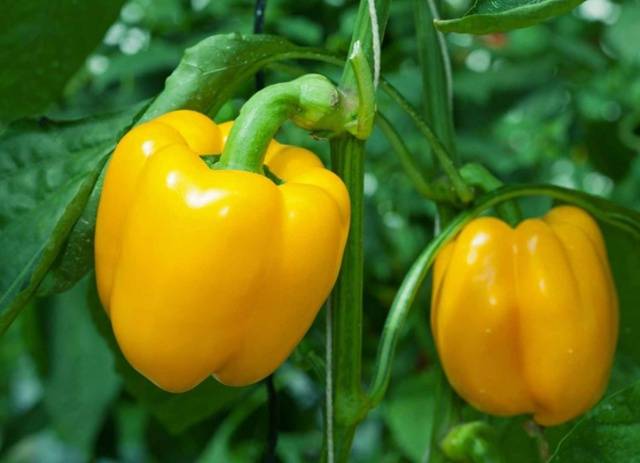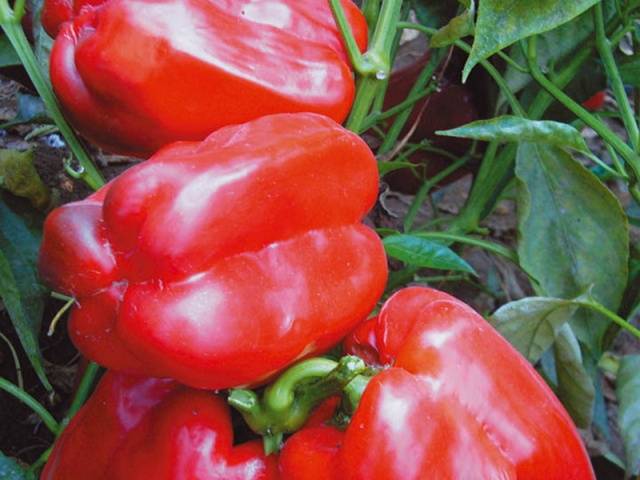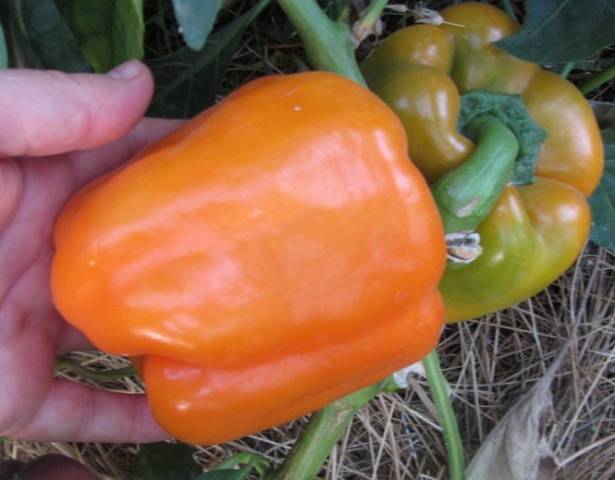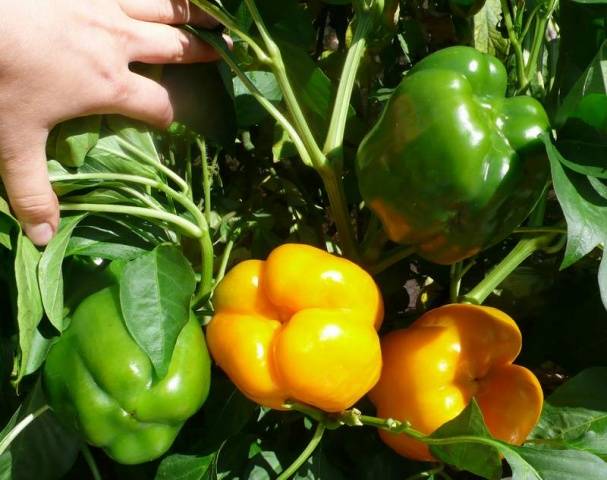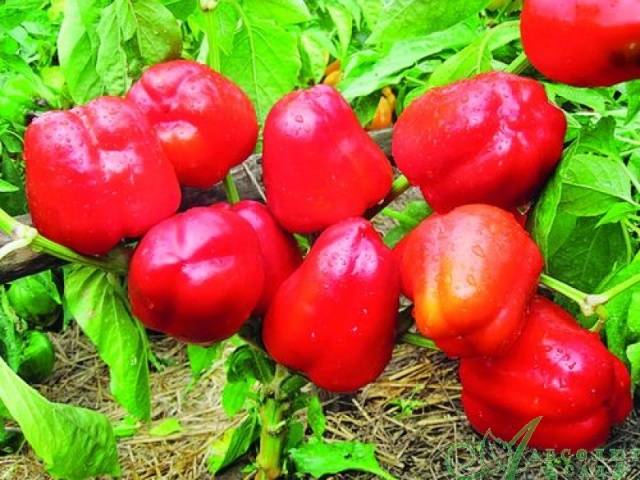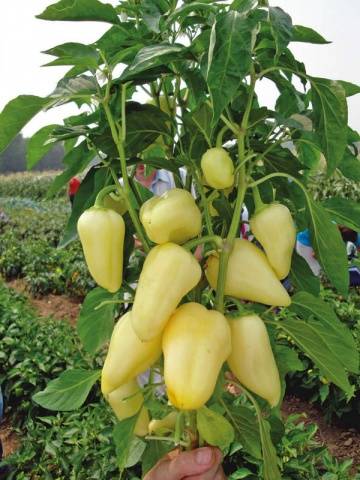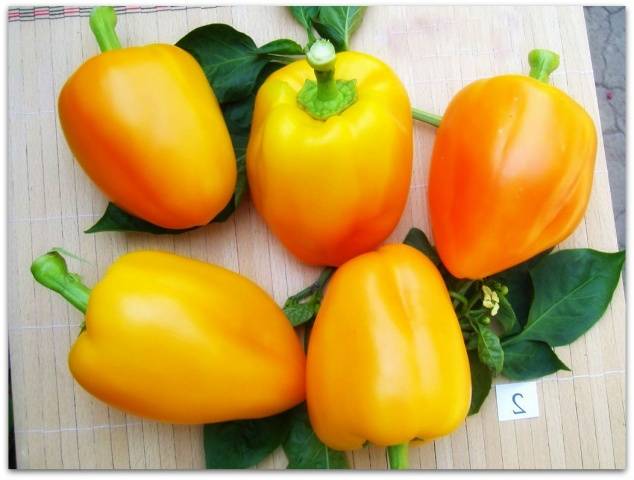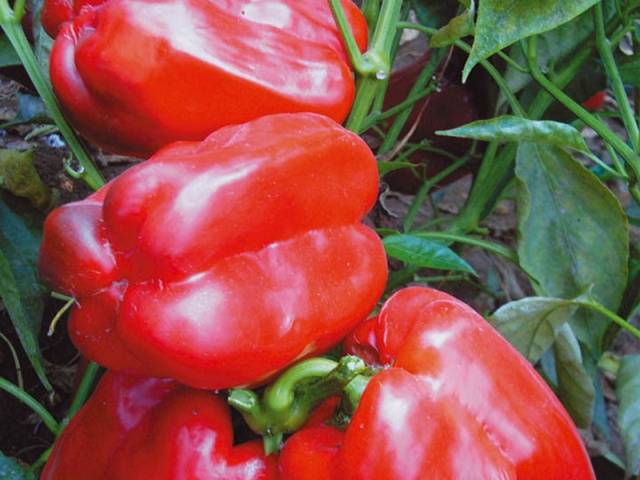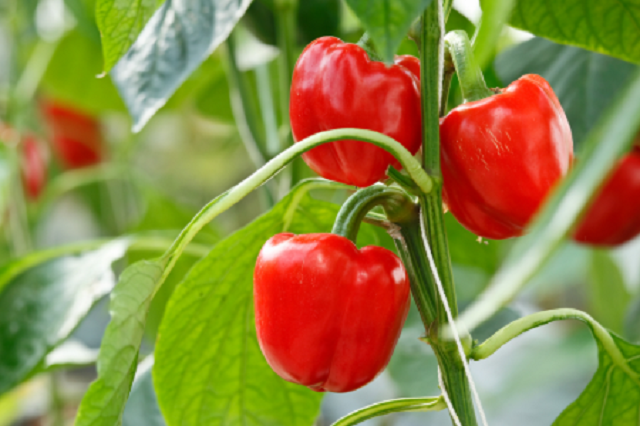Content
Only half a century ago, there were no more than a hundred varieties of bell peppers, only pale green and red fruits were known. To date, breeders have already bred more than a thousand of the best varieties and hybrids of this healthy and tasty vegetable. Now there are peppers of different taste: sweet, sweet and sour, bitter, as well as multi-colored varieties: yellow, red, orange, green and purple, even white peppers are quite common.
Bell pepper - a little "capricious" culture:
- it is planted only in seedlings;
- prefers loose, chernozemic soils;
- loves warmth and moisture;
- cannot develop normally without enough sun;
- has fragile shoots that need to be tied up and pinched.
Despite all this, the breeders managed to bring out a lot of unpretentious varieties of peppers, the best of them will be presented below.
What is the difference between varieties of peppers
Unpretentiousness is not the only quality that the varieties selected for cultivation in the garden or country house should have. For plants, no less important:
- resistance to various diseases;
- the ability to withstand a drop in temperature;
- taste qualities;
- commodity characteristics of vegetables;
- ripening terms.
Early maturing varieties are most suitable for the northern regions of the country and the Urals.... The fruits of such peppers will have time to ripen in a couple of months of a short and cold summer. Moreover, namely early varieties give the most abundant yields, peppers have good taste, are suitable for growing both in greenhouses and in the open field.
In the south of the country, early or mid-season varieties and hybrids are also most often grown. But in regions with long, warm summers, late-ripening peppers can also be cultivated. They are less productive than early ones, but fresh vegetables in the beds will grow until the first frost - mid-October.
How to properly grow peppers
Bell pepper varieties that do not require special care still need some mandatory steps:
- Planting in the ground or in a greenhouse using seedlings. Seedlings must be prepared 1.5-2 months before. The seeds are sown in large boxes and then dived into individual containers.
- Preliminary preparation of the soil: fertilization, digging, disinfection.
- Young plants should not be exposed to low temperatures, it is better to cover even resistant varieties with a thick film or special agrofibre at night.
- It is important to know when to harvest - the technical maturity of peppers is determined by their color. Often the red fruits painted on the seed package can be picked when they are green. Such vegetables are quite suitable for human consumption, they contain all the necessary vitamins and substances.During storage, you can see that the color of the peel changes - this indicates the biological maturity of the vegetable.
"Red Square"
The variety belongs to the early maturing - the first fruits can be eaten 110 days after planting the seeds. The bushes grow small, their height reaches 70 cm. The peppers themselves are cube-shaped with clear edges. Inside, the vegetable is divided into four chambers with seeds.
The color of a ripe fruit is bright green, after storage it changes to scarlet. The wall thickness reaches 9 mm, which makes the fruit very tasty and juicy. The mass of each vegetable is at least 280 grams.
The plant is resistant to most viral diseases inherent in nightshade crops. Ripe peppers tolerate transportation well and can be stored for a long time.
"Ivanhoe"
One of the most unpretentious varieties is "Ivanhoe". This pepper grows in small bushes, it does not need to be tied up and pinched, which greatly simplifies the care of plants.
The culture is early maturing, the first vegetables can be eaten already at the stage of technical maturity - on the 105th day after sowing the seeds.
The fruits grow small, weighing up to 120 grams. The peel is colored at first in a milky white shade, and after full ripening it acquires a scarlet color. The wall thickness ranges from 5.5 to 6 mm. The shape of the pepper is conical, the vegetable is divided into two or three chambers, and there are many seeds inside.
The "Ivanhoe" variety is valued primarily for its marketable qualities - it tolerates transportation well, it is stored for a long time, the harvest consists of smooth and even fruits.
"Funtik"
Semi-determinant variety of bell pepper - "Funtik" ripens by 110-120 days after planting the seeds. The bushes are compact, their height lies in the range of 50-70 cm. The plants have a lot of foliage and side shoots, as well as a large number of ovaries. On each bush of pepper, about 17 fruits ripen at the same time.
The fruits are cone-shaped, slightly uneven, in shape. The variety is very unpretentious - it firmly resists diseases and verticillary wilting, you can grow a crop both in the garden bed and in a closed greenhouse.
"Czardas"
The determinant sweet pepper variety - "Chardash" refers to high-yielding varieties. Up to 18 fruits can be removed from one compact bush. The shape of the peppers is conical, each weighing up to 220 grams. The wall thickness is 6 mm.
Ripe vegetables are colored orange-red. Ovaries on low bushes appear in bunches, the plant becomes very beautiful during the ripening period of the peppers.
The variety does not become infected with many viruses and diseases, and it tolerates deteriorating weather conditions. "Chardash" can be grown both in the greenhouse and in the open field. Vegetables are suitable for both canning and fresh consumption.
"Cow's ear"
The culture belongs to the mid-season, the first vegetables can be removed already on the 130th day after planting seeds for seedlings. The variety is suitable for growing in the open field and for planting under a film, in a greenhouse.
The bushes grow small, the peppers themselves are of medium size - the length is 16 cm, and the weight is 200 grams. The shade of the fruit is bright green, becoming red when fully ripe. The walls of the vegetable are quite thick - up to 8 mm, which makes the pepper of this variety very juicy and "fleshy".
Despite the juiciness, vegetables can be stored for a long time without losing their elasticity. Ripe peppers have a conical elongated shape, slightly corrugated peel.
The fruits can be canned, added to various dishes and salads.
Atlant
Refers to those rare varieties of bell peppers that like thickened landing... Such a culture will take root well in a cramped summer cottage, in a small greenhouse or a film tunnel.
Due to its high yield, "Atlant" has become a favorite of many gardeners - it gives consistently high yields. The fruits themselves are quite large - their length is 26 cm, and their weight reaches 250 grams. The wall thickness of the fruit can be up to 11 mm, which makes the pepper very juicy and tasty.
"Eroshka"
The medium early variety yields fruit on the 120th day after planting seeds for seedlings. The bushes grow very small - their height reaches only 50 cm. This does not prevent the Eroshka variety from being considered one of the highest-yielding varieties. The plant gives off fruits in unison; about 16 ripe peppers can be removed from one bush at a time.
In shape, the vegetable is similar to a cube with weak ribs, inside it is divided into four chambers filled with seeds.
At first, the fruits are colored pale green, and as they ripen, they turn red. The plant is resistant to various diseases and parasites, does not require complex care, can be grown in any way (in a garden bed or under a film). The fruits have excellent taste characteristics and can be used in any form.
"Lemon Miracle"
A variety with very beautiful, bright yellow fruits. The plant gives off fruits early - on the 112th day after planting in the ground, reaches a low height - the bushes are compact, up to 60 cm.
The fruits grow quite large - often their weight exceeds 200 grams. The peel of the fruit is smooth, the walls are thick.
Peppers of the "Lemon Miracle" variety look great in cans, have an excellent taste and aroma. The culture normally tolerates bad weather conditions, does not need careful and complex care.
"Hercules"
Highly fruitful mid-season variety of bell pepper. Many ovaries appear on one plant, the fruits grow very large, so the bushes must be tied up.
Ripe peppers are bright red, have a glossy rind and cuboid shape. The average weight of one vegetable is 350 grams, the walls are up to 10 mm thick. The taste of the fruit is excellent: juicy, rich, with a special "peppery" aroma. The vegetable is suitable for growing in any way.
The plant is unpretentious, all that it needs is the timely tying of shoots with young fruits.
"Siberian bonus"
This extraordinary variety is recognized not only in Russia, but all over the world. A distinctive feature of pepper is its thick, dense flesh. After all, the thickness of the walls of the vegetable reaches 12 mm.
Peppers grow up to 300 grams, have a cube shape, their peel and flesh are colored in a rich orange color.
From small bushes, the height of which rarely exceeds 50 cm, you can get a high yield of sweet, juicy pepper of an unusual shade. With all the merits, the variety is not whimsical at all, it tolerates diseases well and can be grown even in the northern regions.
Vegetables are great for canning, pickling, preparing various dishes and fresh salads.
"Sun of Italy"
One of the best commercial varieties is the “Sun of Italy” pepper. The unusually large fruits reach a weight of 600 grams, of course, you will have to work hard to achieve such a result.
However, the plant is quite unpretentious, it can be grown even in the open field. Bushes grow low and compact - up to 50 cm in height.
The fruits are yellow-orange in color, have a regular prismatic shape and a shiny smooth skin. Vegetables perfectly tolerate transportation even over long distances, are subject to long-term storage, and are resistant to various diseases.
"Shorokshary"
The product of Moldovan breeders - the "Shorokshary" sweet pepper variety, has won international exhibitions more than once.
The plant grows only 40-50 cm, but has many fruits. Up to 20 peppers can be removed from one such bush. The peppers themselves are large in size - their weight often reaches 400 grams.
The shape of the fruit is conical, the walls are even and smooth. The pulp of this vegetable is very juicy with an unusual spicy aroma.You can cook any dish from the fruit, but it is best suited for canned salads and lecho.
On one bush, there can be a mass of fruits of different shades at once: from pale green to yellow and orange-red.
"Belozerka"
One of the most unpretentious varieties is Belozerka. This pepper is known both in the south and in the north. In any climatic conditions the plant gives a fairly high and stable yield.
The fruits themselves have an excellent presentation - large sizes, one-dimensional vegetables, smooth yellow peel.
The variety can be grown in the garden, and in the greenhouse, and in the greenhouse.
"Anastasia"
The most remarkable thing about this variety is the shape and color of the fruit. The peppers have an unusual heart-shaped shape and a rich cherry hue.
Ripe fruits are very similar to tomatoes - the same juicy, appetizing and sweet, with thick "fleshy" pulp.
Growing conditions are not very important for this variety. He gives bountiful harvests not only in the garden, in greenhouse and greenhouse, but even on the balcony and in a flowerpot.
"Golden Jubilee"
One of early varieties of bell peppers has low bushes and a lush crown. The vegetable belongs to high-yielding, gives a consistently large number of fruits.
The peppers themselves are colored in a juicy orange color, have a cube shape and rather thick walls - up to 7 mm.
The mass of each vegetable reaches 150 grams. Peppers have excellent taste and aroma and are suitable for preparing a wide variety of dishes.
"Bel Goy"
A rare variety whose seeds cannot be found on the market, they are only sold in large stores. The plant reaches a height of 120 cm, so it is preferable to grow it not in a garden bed, but in a greenhouse, tying it to a trellis.
The fruits themselves are also very large - their average weight is 400 grams. The shape of the vegetable is elongated cuboid. The pulp is juicy and aromatic.
What determines the unpretentiousness of pepper
The information on a bag of seeds about the unpretentiousness of a particular variety speaks of several factors at once:
- less labor costs for the owner;
- the ability to withstand temperature fluctuations without dropping flowers and ovaries;
- resistance to viruses and disease.
Experienced gardeners already have their favorite varieties of vegetables, but those who first decided to start farming will have to experiment to choose the variety of pepper most suitable for specific conditions.
